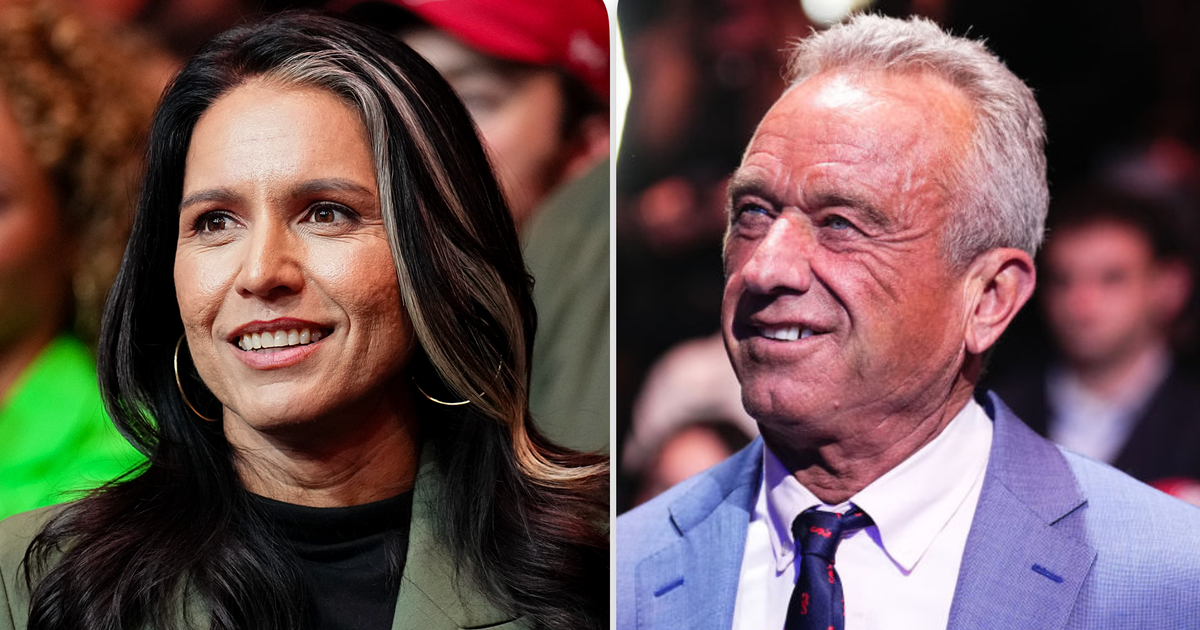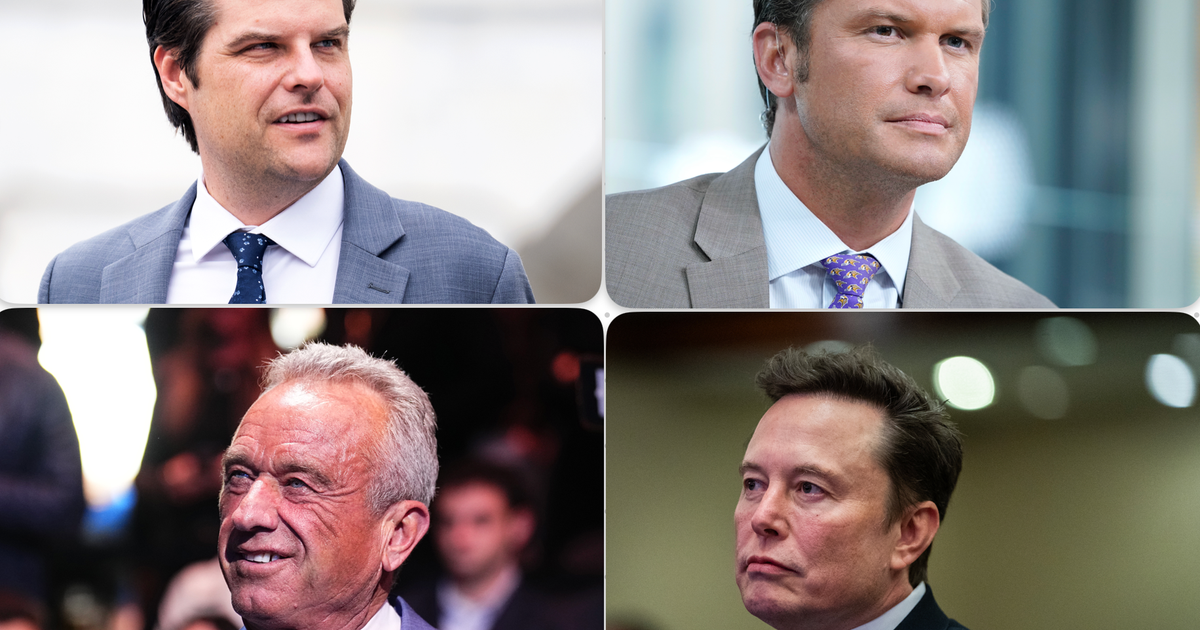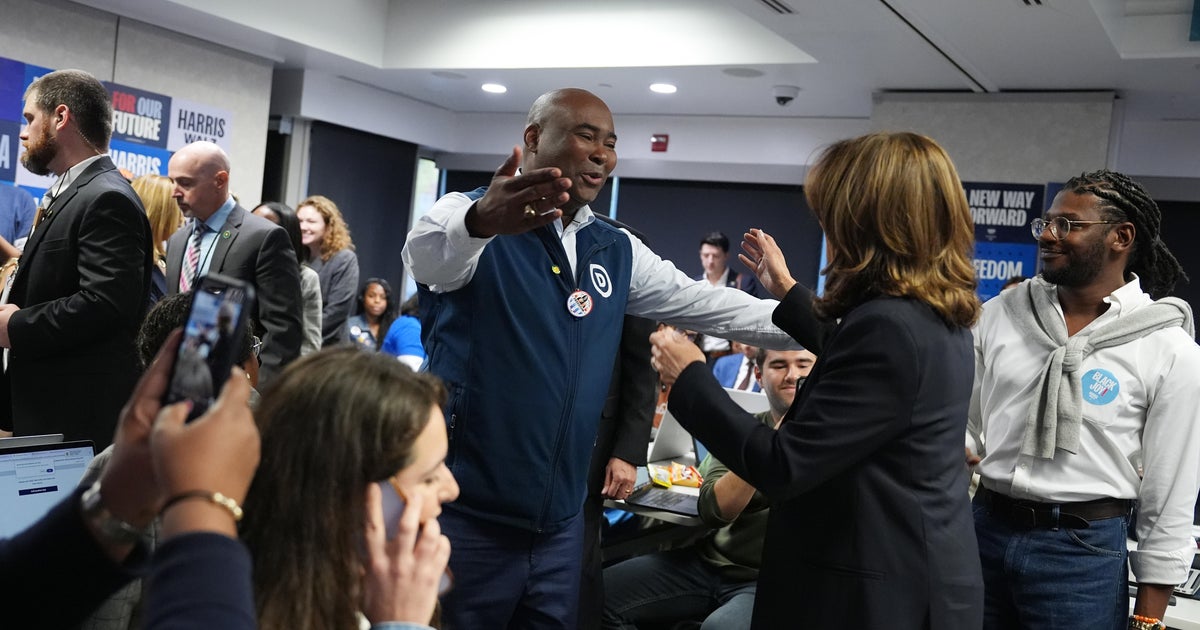Map shows where RFK Jr. is on the ballot in the 2024 election
Washington — Unlike the Republican and Democratic presidential nominees, Robert F. Kennedy Jr. faced a costly and time-consuming process to appear on general election ballots as an independent candidate before he suspended his campaign on Aug. 23.
Rules vary from state to state, but independent candidates typically have to collect thousands of signatures or be supported by a minor party in order to apply for ballot access.
Kennedy opted to run as an independent in October 2023, abandoning his Democratic primary bid. Democrats and Republicans questioned whether the independent candidate would pull support from their voters.
Seeing no path to victory, Kennedy endorsed former President Donald Trump in a speech in Phoenix on Aug. 23. But he said his name would remain on the ballot in non-battleground states and encouraged voters there to still vote for him.
In battleground states, "where my presence would be a spoiler, I'm going to remove my name, and I've already started that process and urge voters not to vote for me," he said. He added that the campaign's polling consistently showed that he would "likely hand the election over to the Democrats" if he was on the ballot in battleground states.
Kennedy later said his supporters in all states should vote for Trump and he has requested that states other than those that are closely contested remove his name from the ballot.
"He's a well-known name," said Dan Mallinson, an associate professor at Pennsylvania State University at Harrisburg. "He's different than a lot of other third-party candidates that run."
Kennedy is currently on the ballot in two contested states — Michigan and Wisconsin.
Wisconsin rejected Kennedy's request to withdraw — state law requires that candidates remain on the ballot unless they die. The Michigan secretary of state said it was too late for Kennedy to withdraw his name. The Michigan Supreme Court confirmed that Kennedy would remain after a Michigan Court of Appeals panel granted his request.
"Some of these states are such tight margins that it can matter," Mallinson said before Kennedy made his announcement to suspend his campaign.
CBS News estimates in August showed Vice President Kamala Harris and Trump statistically tied in Michigan and Wisconsin. Polling from Marquette Law School, taken after Kennedy suspended his campaign, showed Harris with 47% support among registered voters in Wisconsin, Trump with 43% and Kennedy with 6%. The poll's margin of error is plus or minus 4.6 percentage points.
Democrats saw a bump after swapping their nominee from Mr. Biden to Harris, largely coming from voters who had previously expressed support for Kennedy, according to a Pew Research Center poll from August.
Before Kennedy ended his campaign, support for the independent candidate had dropped in several polls. It's typical of third-party candidates to see their poll numbers drop as it gets closer to Election Day, according to Matthew Foster, a professor at American University.
"When you're polling months beforehand, people's choices are a bit mushy," he said. "They're more willing to support a third-party candidate at that moment. But when the election comes down to the wire and it really becomes time for the decision, they tend to go either Republican or Democrat."
So far, more than half of states — those that are dark blue on the map below — and Washington, D.C., have confirmed that he will appear on the November ballot.
Kennedy was officially on the ballot in Arizona, North Carolina and Nevada — all battleground states — but will no longer appear. He also will not appear on the ballot in Florida, Maine, Massachusetts, Missouri, Nebraska, New Hampshire, North Dakota, Ohio, Pennsylvania, South Carolina, Texas, Virginia and Wyoming.
He failed to qualify in New York and Georgia amid questions about his New York residency. The Supreme Court rejected his request to be reinstated to the ballot in New York. Kennedy did not appeal a judge's decision in Georgia, a battleground state.
Even if he ends up on a majority of ballots, "he won't make any impact if it's not the battlegrounds," Foster said.
- Alabama
- Alaska
- Arkansas
- California
- Colorado
- Connecticut
- Delaware
- Hawaii
- Idaho
- Illinois
- Indiana
- Iowa
- Kansas
- Kentucky
- Louisiana
- Maryland
- Michigan
- Minnesota
- Mississippi
- Montana
- New Jersey
- New Mexico
- Oklahoma
- Oregon
- Rhode Island
- South Dakota
- Tennessee
- Utah
- Vermont
- Washington
- Washington, D.C.
- West Virginia
- Wisconsin
States where he will not be on the ballot:
- Arizona
- Florida
- Georgia
- Maine
- Massachusetts
- Missouri
- Nebraska
- Nevada
- New Hampshire
- New York
- North Carolina
- North Dakota
- Ohio
- Pennsylvania
- South Carolina
- Texas
- Virginia
- Wyoming




